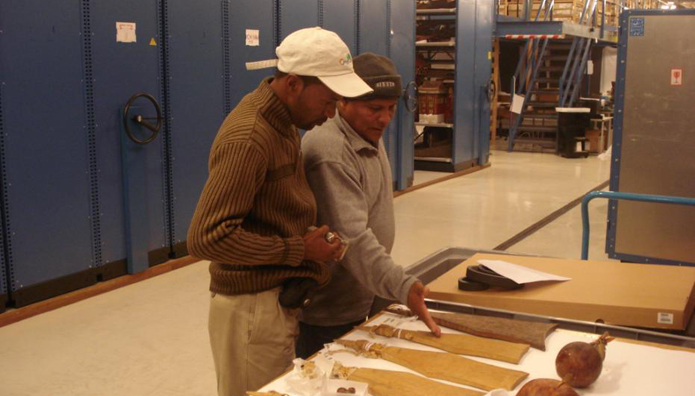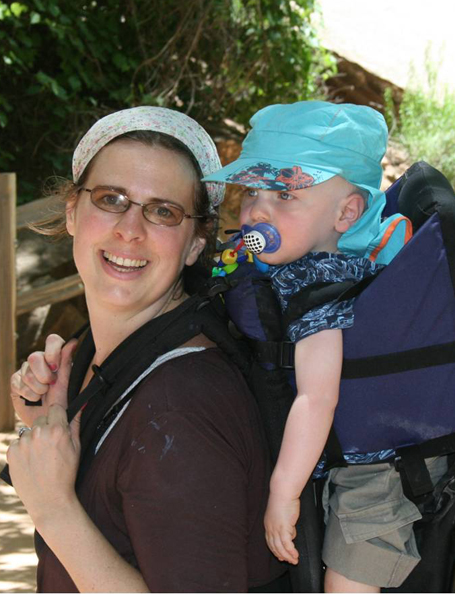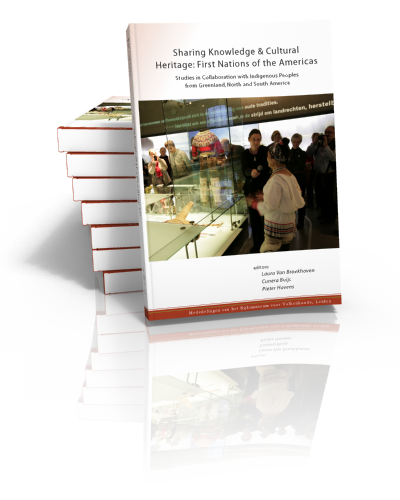 Museum Volkenkunde Leiden, source community participation
Museum Volkenkunde Leiden, source community participation Towards a Postcolonial Practice for Ethnographic Museums
In the past few years New Zealand Maoris, Malian Dogon, Surinam and Brazil Wayana, Trio, Karina, and Tupari Indians, Australian Aborigines, Indonesian Governors, Japanese Princes, Korean and Saudi businessmen stood on the doorsteps of Dutch Ethnographic museums and heritage institutions to access to their own heritage. Their heritage lies partly in depots of European institutions and is often poorly preserved in the source countries. Inspired by a post-colonial discourse in the “90 many disputes over heritage matters ultimately ended up before court. This rarely resulted in a constructive outcome.
Rather than seeking pragmatic alternatives which could offer solutions for both parties, matters are stuck in timely legal matters over ownership and endless polemics between nation states, institutions and indigenous peoples. In the current millennium Ethnographic Museums have been trying to develop a Postcolonial Practice. This practice is rooted in Foucault, Said, Spivak and Latour who developed this postcolonial discourse. Postcolonial practices consist of a search for a pragmatic approach to achieve constructive results for all stakeholders, which offer more than a one-dimensional view of the exotic other.
Ethnographic museums are treasure troves of international heritage and have become cosmopolitan intersections, a role that we ourselves had never imagined, but we are now helping to shape. Conscious of our shared heritage, we aim to be a reliable, inspiring partner and ally in the process of making accessible the cultural heritage we have under our care. The choices for the museums need not be limited to trade-offs between western and non western; art and craft; and object or context. How can we develop new projects and presentations that are fun and entertaining without losing it’s integrity and that contribute to durable international collaborations?
By transcending property issues and findong a pragmatic middle ground, we break away from naming issues which are only relevant to insiders. The starting point should be to create inspiring products, integrity and multidimensional views via exhibitions and books that expand rather than narrow subjectivity. In this quest for a post-colonial practice, in the process of trial and error, of course, a lot goes wrong. No one has the recipe for good international cooperation. No one has ready made plans for action ready. That makes these projects an exciting new territory.
This raises the question who are the stakeholders of Ethnographic museums: the taxpayer, (inter) national museums and heritage institutions, researchers, artists, nation states, indigenous peoples, or new age movement? How do we serve all stakeholders and how do we find a balance between our mission and our vision? Should we assume that he who pays the piper calls the tune? Or, should some stakeholders have more rights to access the collections, or to determine the topics and approaches of our projects and presentations?
In our experience we get a lot further if we do not solely focus on property issues. Like the Indian Surinamese guest curators that have been working with our collections in the last few years, we would like to see our exhibitions, objects and collections as dynamic way to create a shared future. Our partnerships and collections serve as tools to shape a postcolonial museum practice. This applies to the way we conduct research, and the way in which we restore and exhibit objects. Its not set in stone that each project should be a cooperation; we determine from project to project what is the most constructive solution. In cases of repatriation or shared heritage projects we see that our Dutch National Collection can act as bridge between nations, generations, cultures, social classes and sexes.
Written by Laura Van Broekhoven and Geurds Alex
This article was written by Laura Van Broekhoven and Geurds Alex as a contribution to the event Cultural Heritage and Shared Knowledge organized by Framer Framed, 7 November 2010.
Laura Van Broekhoven is a lecturer at the Faculty of Archaeology of Leiden University and curator Central South America working at the Museum of Ethnology in Leiden. In 2016 Laura van Broekhoven became the director of the Pitt Rivers Museum, University Oxford.
Geurds Alex is a researcher at the Faculty of Archaeology of Leiden University.
Colonial history / Innovative heritage / Museology /
Agenda
Cultural Heritage and Shared Knowledge
A panel discussion on the concept and use of cultural heritage.
Network



